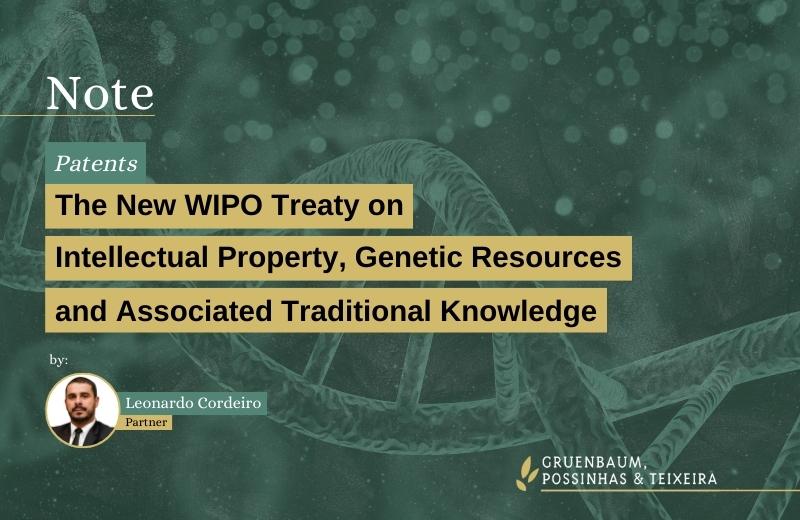The New WIPO Treaty on Intellectual Property, Genetic Resources, and Associated Traditional Knowledge

Last Friday, May 24th, the new treaty by the World Intellectual Property Organization (WIPO) on intellectual property, genetic resources, and associated traditional knowledge was published. This treaty aims to regulate the use of countries’ genetic heritage and its diversity, ensuring that any patent application filed in the member countries of the treaty declares the use of genetic material from the biodiversity of the member countries.
Our partner Leonardo Cordeiro comments that the treaty presents some points that need attention. Although it broadly addresses intellectual property, the focus is mainly on patent applications. Another point of emphasis is the absence of immediate sanctions for countries that do not comply with the treaty’s provisions. Initially, the idea is that there will be no punitive sanctions, but rather that member countries should create internal means and rules to ensure compliance. In case of non-compliance, applicants will be notified and given a timeframe to respond. The loss of intellectual property rights, in this case of a patent application, will occur only if the applicant acts in bad faith or fraudulently.
There are still other points to be discussed, but the important thing is that WIPO has developed a treaty that seeks greater care for the environment and biodiversity. This treaty represents a significant advance in the protection of genetic resources and traditional knowledge, promoting sustainable use and the preservation of biodiversity. By requiring the declaration of the use of genetic material in patent applications, the treaty encourages transparency and respect for the natural wealth of countries, contributing to the conservation of ecosystems and the appreciation of traditional knowledge.
